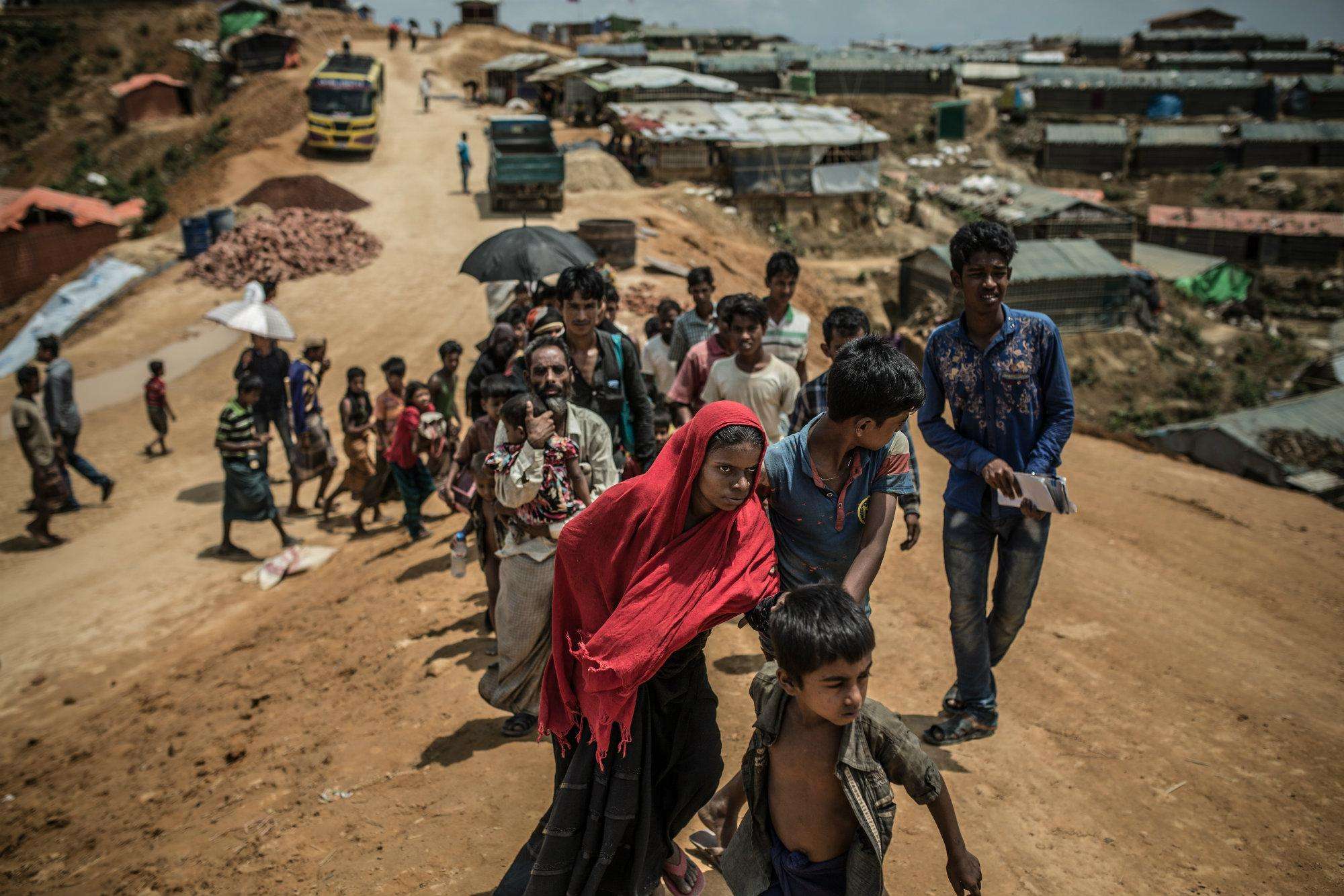MSF works alongside traditional birth attendants from the Rohingya community in Bangladesh to identify pregnant women, inform them about antenatal and postnatal care available, and promote safe deliveries at our facilities. These attendants are trained by MSF to identify and recognize complications during delivery and help a woman in labor to reach a hospital when necessary.
Solima Hatu
Solima Hatu fled Myanmar in August when the military attacked her village, abducting and raping many women. The journey to Bangladesh was terribly frightening for her, her two sons, two daughters-in-law (one of whom was pregnant), and five grandchildren. The family went without food for four days.
As a traditional birth attendant in Myanmar, Solima says she has delivered at least 1,500 babies. “Even after my own delivery, I got up and immediately went to help another woman.” The only possessions she brought with her to Bangladesh are two certificates she received from MSF in Myanmar—one for attending a course for traditional birth attendants and the other for demonstrating her knowledge of antenatal, intrapartum, and postnatal care. When she arrived in Balukhali settlement, Solima delivered three babies, but she didn’t have gloves.
When three of her grandchildren got sick, she took them to MSF’s hospital. “I asked the doctor for gloves … and later someone heard that I wanted gloves to deliver babies.” MSF asked Solima if she wanted to help identify pregnant and laboring women in camps who needed to come to an MSF facility, especially at night. Solima responded: “I can do everything.”
Samsun Nahar
Samsun Nahar arrived in Balukhali settlement in August. Before she fled Myanmar, Samsun was working as a traditional birth attendant at a government hospital. “One day the military came in and shot a patient. That’s when I ran away,” she said. The military also shot her mother, father, and two brothers in front of her.
On the journey to Bangladesh she delivered many babies, including while crossing the water. She lives with her two sons and her daughter in Balukhali settlement.
“It is very hot these days in Balukhali camp. There is no shade, there are no trees. There were beautiful trees in Myanmar.” Samsun claims she has delivered 500 babies since arriving in Balukhali. “No babies have died in our blocks, in our hands.”
For Samsun, life in Balukhali camp is better than it might be if she was not able to work as a traditional birth attendant helping to deliver babies. “This way, we are more able to help, Rohingya to Rohingya.”





